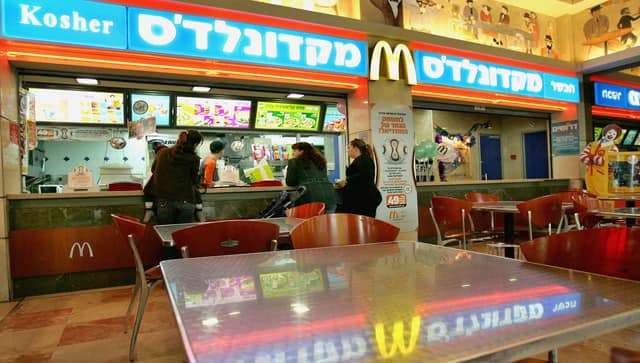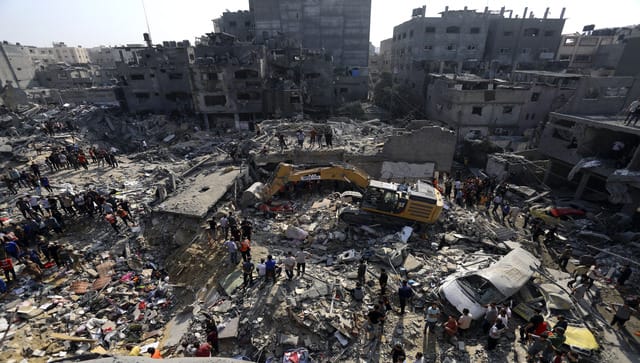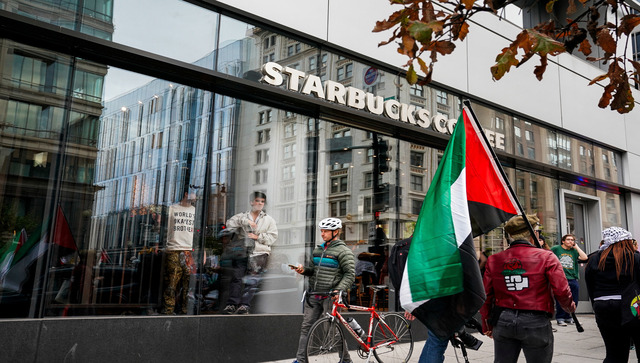It has been a month since Hamas militants attacked Israel, triggering the West Asian nation to declare war. The latest flare-up has killed thousands, including innocent civilians, in Israel as well as Hamas-ruled Gaza. The conflict has exposed deep divisions among people globally. The corporate world has also become deeply embroiled as it feels the heat to strike a balance while reacting to the war. Luxury fashion brand Dior is facing backlash on social media after reports surfaced that it has replaced Palestinian-American model Bella Hadid with Israeli model May Tager in its latest ad campaign. Neither Dior nor Hadid has addressed these reports. Let’s take a look at how companies are finding themselves tangled in the politics of the Israel-Hamas war. Companies face backlash Turkey’s Parliament has reportedly dumped Coca-Cola and Nestle products over their alleged support for Israel in the conflict. A parliamentary source told Reuters that items of these brands were removed from menus as a response to a “huge public outcry against these companies” for backing Israel. This is the first time a government or major organisation has targeted big global brands over the Israel-Hamas war, the Reuters report noted. Nestle announced last month that it temporarily closed one of its production plants in Israel as a “precaution”. Last week, UK-based retail brand Marks and Spencer (M&S) came under fire for posting a photo on Instagram of Christmas party hats in the colours of the Palestinian flag burning in a fireplace, reported BBC. After it created outrage on social media, the company apologised and took down the post, which it said was to “playfully show that some people don’t enjoy wearing paper Christmas hats”. M&S also said the advertisement was filmed in August, much before the recent escalation. However, some users alleged the post was intentional.
Soon after the war started, Starbucks found itself in a soup after its union, Starbucks Workers United, posted a message on X expressing solidarity with Palestinians. The now-deleted post prompted calls to boycott Starbucks. The American coffeehouse chain also sued the union over the post, while the labor organisation filed a countersuit against the company, according to ABC News. Sara Kelly, executive vice president and chief partner officer at Starbucks, said in a statement, that the firm “strongly” disagrees with the views of the Workers United, which does not “represent our company’s views, positions, or beliefs”. McDonald’s also faced flak after one of its Israel-based franchises announced free food for personnel of the Israeli military, reported ABC News. On the other hand, McDonald’s Malaysia said in a statement that it was “100 per cent Muslim-owned” and donated funds for humanitarian aid in Gaza. [caption id=“attachment_13365642” align=“alignnone” width=“640”] Israeli customers at a McDonald’s restaurant in Tel Aviv in 2006. Reuters File Photo[/caption] ALSO READ:
Will handle Gaza for ‘indefinite period’, says Netanyahu. Will it go West Bank way?
Corporations under pressure Companies, especially in the United States where corporations have close ties to Israel, have been feeling the pressure to respond to the conflict. Over 150 companies have condemned Hamas’ 7 October attack on
Israel
, according to a list of public statements collated by Yale University Professor of Management Jeffrey Sonnenfeld. On 9 October, Amazon CEO Andy Jassy called attacks against civilians in Israel “shocking and painful to watch”. Google chief executive Sundar Pichai was quick to publicly express concern for Israelis in the aftermath of the Hamas attack. However, he has been criticised by Google employees for not making a public statement about Palestinians, as per The Washington Post report. Employees at companies like Google and Amazon have asked bosses to take a public stand on the Israel-Hamas war, the report added. According to Bloomberg, workers at Procter & Gamble, Nike and Instacart have sent Slack messages or emails to executives, expressing displeasure over their company’s response to the war. The Israel-Hamas conflict has evoked deep divisions among employees, with many employers forced to turn off the comments function on platforms amid heated discussions, reported Axios. While Arab and Muslim workers feel their pain is being dismissed, Jewish employees are worried about rising antisemitism. According to Axios, there is also fear among employees of retaliation at the workplace if they strongly denounce Israel for its relentless bombarding of Gaza. [caption id=“attachment_13365662” align=“alignnone” width=“640”]
Israeli customers at a McDonald’s restaurant in Tel Aviv in 2006. Reuters File Photo[/caption] ALSO READ:
Will handle Gaza for ‘indefinite period’, says Netanyahu. Will it go West Bank way?
Corporations under pressure Companies, especially in the United States where corporations have close ties to Israel, have been feeling the pressure to respond to the conflict. Over 150 companies have condemned Hamas’ 7 October attack on
Israel
, according to a list of public statements collated by Yale University Professor of Management Jeffrey Sonnenfeld. On 9 October, Amazon CEO Andy Jassy called attacks against civilians in Israel “shocking and painful to watch”. Google chief executive Sundar Pichai was quick to publicly express concern for Israelis in the aftermath of the Hamas attack. However, he has been criticised by Google employees for not making a public statement about Palestinians, as per The Washington Post report. Employees at companies like Google and Amazon have asked bosses to take a public stand on the Israel-Hamas war, the report added. According to Bloomberg, workers at Procter & Gamble, Nike and Instacart have sent Slack messages or emails to executives, expressing displeasure over their company’s response to the war. The Israel-Hamas conflict has evoked deep divisions among employees, with many employers forced to turn off the comments function on platforms amid heated discussions, reported Axios. While Arab and Muslim workers feel their pain is being dismissed, Jewish employees are worried about rising antisemitism. According to Axios, there is also fear among employees of retaliation at the workplace if they strongly denounce Israel for its relentless bombarding of Gaza. [caption id=“attachment_13365662” align=“alignnone” width=“640”] Palestinians look for survivors under the rubble of destroyed buildings following Israeli airstrikes in Jabaliya refugee camp, northern Gaza Strip, on 1 November. AP File Photo[/caption] Some top executives had to resign due to the backlash over their comments, while some prospective workers have lost their job offers over their remarks. Companies are caught between a rock and a hard place as their stance is being rejected on both sides for either being too pro-Israeli or more sympathetic towards Palestinians, noted ABC News. Response during Russia-Ukraine war After Moscow invaded Ukraine last February, hundreds of companies felt the pressure and had to flee Russia. From Adidas to Starbucks, multiple brands said they were suspending sales or closing operations in Russia. Sanctions by Western countries on Russia also made it hard for corporations to run there. According to a list compiled by Yale University, giants like Ford, Renault, McDonald’s, Ikea and Shell are among Western businesses that have completely pulled out of Russia. However, a study in January this year found that many firms, including consumer goods giant Unilever, US fast food franchise Subway and Italian pasta-maker Barilla, continue to operate and invest in Russia, reported Politico. With inputs from agencies
Palestinians look for survivors under the rubble of destroyed buildings following Israeli airstrikes in Jabaliya refugee camp, northern Gaza Strip, on 1 November. AP File Photo[/caption] Some top executives had to resign due to the backlash over their comments, while some prospective workers have lost their job offers over their remarks. Companies are caught between a rock and a hard place as their stance is being rejected on both sides for either being too pro-Israeli or more sympathetic towards Palestinians, noted ABC News. Response during Russia-Ukraine war After Moscow invaded Ukraine last February, hundreds of companies felt the pressure and had to flee Russia. From Adidas to Starbucks, multiple brands said they were suspending sales or closing operations in Russia. Sanctions by Western countries on Russia also made it hard for corporations to run there. According to a list compiled by Yale University, giants like Ford, Renault, McDonald’s, Ikea and Shell are among Western businesses that have completely pulled out of Russia. However, a study in January this year found that many firms, including consumer goods giant Unilever, US fast food franchise Subway and Italian pasta-maker Barilla, continue to operate and invest in Russia, reported Politico. With inputs from agencies
)